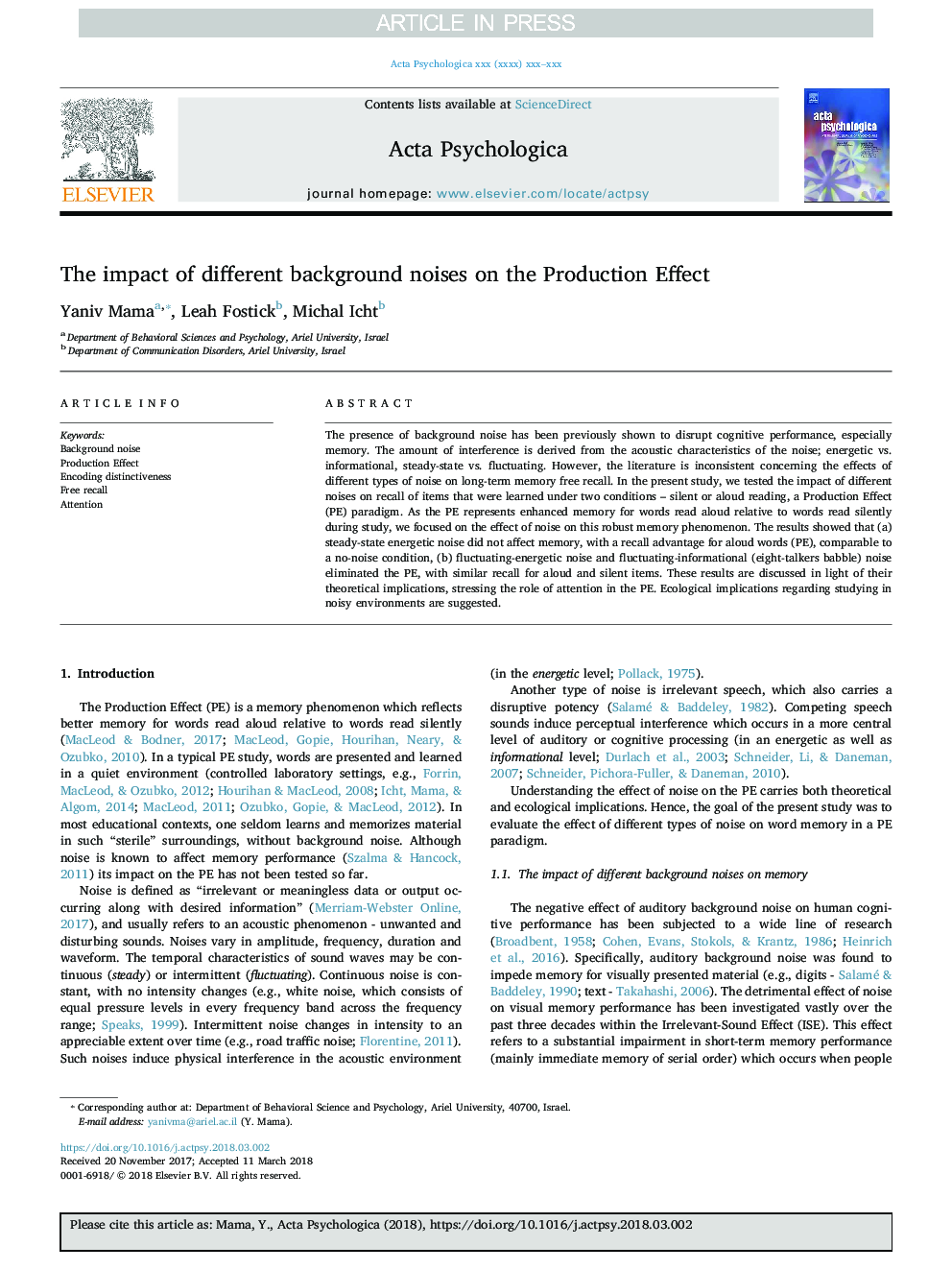| Article ID | Journal | Published Year | Pages | File Type |
|---|---|---|---|---|
| 7276808 | Acta Psychologica | 2018 | 8 Pages |
Abstract
The presence of background noise has been previously shown to disrupt cognitive performance, especially memory. The amount of interference is derived from the acoustic characteristics of the noise; energetic vs. informational, steady-state vs. fluctuating. However, the literature is inconsistent concerning the effects of different types of noise on long-term memory free recall. In the present study, we tested the impact of different noises on recall of items that were learned under two conditions - silent or aloud reading, a Production Effect (PE) paradigm. As the PE represents enhanced memory for words read aloud relative to words read silently during study, we focused on the effect of noise on this robust memory phenomenon. The results showed that (a) steady-state energetic noise did not affect memory, with a recall advantage for aloud words (PE), comparable to a no-noise condition, (b) fluctuating-energetic noise and fluctuating-informational (eight-talkers babble) noise eliminated the PE, with similar recall for aloud and silent items. These results are discussed in light of their theoretical implications, stressing the role of attention in the PE. Ecological implications regarding studying in noisy environments are suggested.
Keywords
Related Topics
Life Sciences
Neuroscience
Cognitive Neuroscience
Authors
Yaniv Mama, Leah Fostick, Michal Icht,
